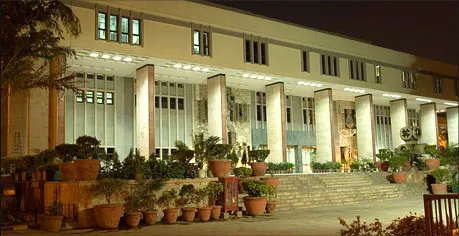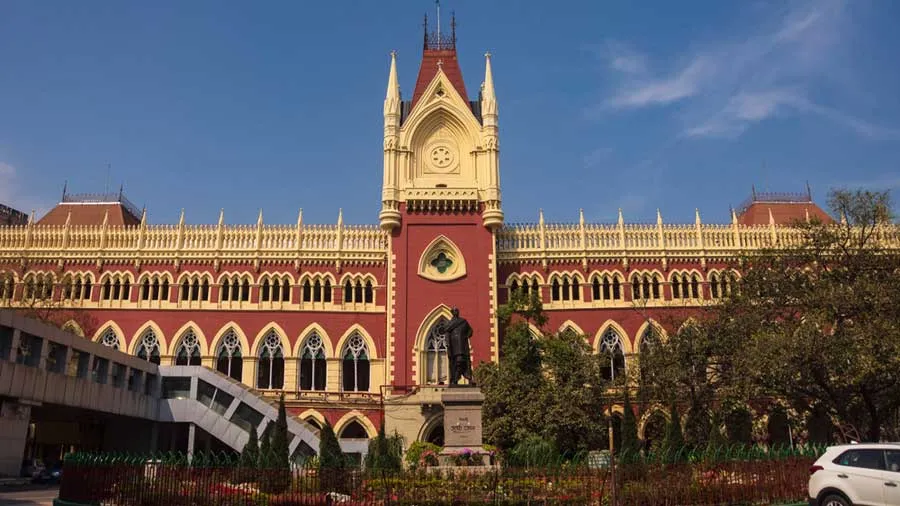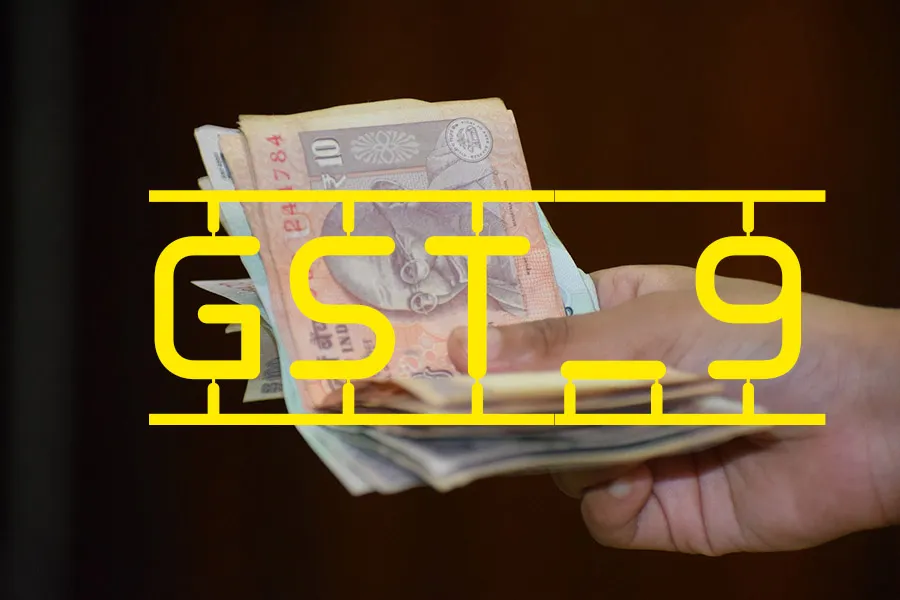CIVIL, AND CRIMINAL PROCEEDINGS AGAINST A BANKRUPT COMPANY IN INDIA
The Insolvency and Bankruptcy Code (IBC), 2016, empowers creditors to recover dues through a structured, time-bound process. Key features include:
Moratorium on Debt Recovery: Immediate stay on civil proceedings against the debtor company (Section 14, IBC).
GUIDE FOR CREDITORS PURSUING CLAIMS AGAINST A BANKRUPT COMPANY UNDER THE INSOLVENCY AND BANKRUPTCY CODE (IBC)
This guide outlines the legal framework, procedural steps, and strategic considerations for creditors seeking to recover dues from a bankrupt company in India under the
Insolvency and Bankruptcy Code (IBC), 2016. The IBC prioritizes creditor rights and streamlines insolvency resolution through a time-bound process.
FRRO Registration in India
Foreign nationals, including those of Indian origin, visiting India on long-term visas (more than 180 days) or with special endorsements on their visas requiring registration, must register with the relevant Foreigners Regional Registration Officer (FRRO). This guide provides detailed information on the mandatory registration requirements, exemptions, the registration process, and the consequences of non-compliance.
Comprehensive Guide to FRRO Registration in India
Foreign nationals visiting India on long-term visas such as student, business, medical, research, or employment visas for more than 180 days must register with the Foreigners Regional Registration Officer (FRRO). This registration must be completed within 14 days of arrival in India. Here’s a detailed guide to the FRRO registration process, including required documents and steps to ensure compliance.
Compliance for a Newly Formed Private Limited Company in India
After registering a Private Limited Company in India, several compliances must be followed under the Companies Act, 2013:
1. First Compliance
First Board Meeting
Must be held within 30 days of company formation. The auditor is appointed for one year using Form ADT-1.
Understanding Foreign Company under the Companies Act, 2013
A "foreign company" as defined under Section 2(42) of the Companies Act, 2013, refers to any company or body corporate that is incorporated outside India but has a place of business in India. This place of business can be established either directly or through an agent, and can operate physically or via electronic means. Furthermore, any business activity conducted in India by such a company, irrespective of the manner, qualifies it as a foreign company.
Unregistered suppliers can claim Input Tax Credit
Introduction:
In the dynamic landscape of Goods and Services Tax (GST), unregistered suppliers often find themselves transitioning into the realm of registered entities. This metamorphosis not only brings compliance responsibilities but also opportunities for claiming Input Tax Credit (ITC) on existing stock. This guide is tailored for professionals, offering a detailed procedure, calculations, and compliance nuances for seamless ITC claims under Section 18(1)(a) of the GST Act.
Kerala High Court Allows Adjustment of GST Payment Under Wrong Head in Landmark Ruling
Introduction:
In a recent landmark judgment, the Kerala High Court has issued an order that allows the adjustment of GST payments made under the wrong head. The case, Saji S vs Commissioner, State GST Department Tax Tower, involved a registered dealer who faced challenges when goods purchased from Chennai were detained by the Assistant State Tax Officer in Kerala. The petitioner, consignee, and transporter found themselves entangled in a situation where the tax and penalty were remitted under the wrong GST head, leading to a refusal by authorities to release the goods.
Section 43B(h) does not apply to Traders
Introduction:
The Finance Act of 2023 introduced a pivotal amendment to Section 43B(h) of the Income Tax Act, 1961, reshaping the landscape of delayed payments and benefits for businesses falling under the Micro, Small, and Medium Enterprises Development Act, 2006 (MSMED Act). This amendment holds particular significance for Wholesale and Retail Traders, altering the dynamics of payment timelines and tax deductions.
Decoding GST Compliance Amendments: A Comprehensive Analysis of the Impact of Notification No. 18/2022-CT
Introduction:
The Central Government, through Notification No. 18/2022-Central Tax dated 28.09.2022, has made significant amendments to the provisions of the Finance Act, 2022, impacting the Goods and Services Tax (GST) compliance landscape. The amendments primarily focus on extending the time limit for specific compliances related to the financial year 2021-22. This article delves into the details of the amended provisions and their implications on the GST compliance timeline.
Madras High Court Ruling on Belated Input Tax Credit Claims: A Comprehensive Analysis u/s 16 (4)
Introduction:
The recent judgment of the Madras High Court in the case of Tvl. Kavin HP Gas Gramin Vitrak vs Commissioner of Commercial Taxes addresses crucial issues surrounding the belated claims of Input Tax Credit (ITC) and the absence of Form GSTR-2 notification. The petitioner, engaged in the business of Petroleum Gases, faced challenges in the scrutiny of GSTR-3B returns for the financial years 2017-2018 and 2018-2019. This article provides an in-depth analysis of the case, focusing on the technical impediments faced by the petitioner and the court's stance on rectifying procedural shortcomings.
Key Issues Raised by the Petitioner
No penalty for the failure to generate an E-way bill under Section 129
Introduction:
The introduction of the Goods and Services Tax (GST) in India brought about significant changes in the taxation landscape. One crucial aspect is the requirement for the generation and adherence to E-Way Bills, governed by Section 68 and related rules of the Central Goods and Services Tax (CGST) Act, 2017. This article aims to provide a comprehensive understanding of the implications of E-Way Bill compliance, particularly focusing on the legal aspects and potential penalties associated with non-compliance.
Role of FSSAI in Regulating Food Industry
The Food Safety and Standards (FSS) Act of 2006 was enacted to regulate the food industry in India, with the implementation overseen by the Food Safety and Standards Authority of India (FSSAI). FBOs, or Food Business Operators, are required to obtain FSSAI registration/licenses to ensure the safety and health of the food consumed by the public. Compliance with FSSAI regulations includes the mandatory filing of annual returns within the stipulated time frame to avoid penalties.
Recovery of Self-Assessed Tax for Mismatch in GSTR-1 vs GSTR-3B: Implications and Process
Introduction:
In a bid to combat fraudulent billing and under-reporting of sales, the government has empowered GST officers to initiate recovery action against businesses that show higher sales in their monthly GSTR-1 but inaccurately report it in their GSTR-3B. The Finance Act, 2021, introduced an explanation to Section 75(12) of the Central Goods and Services Tax Act, 2017, allowing for the retrieval of self-assessed tax. This article provides a comprehensive overview of the recovery process and its implications for businesses.
Recovery Process for Mismatch in GSTR-1 vs GSTR-3B:
Section 75(12) of the CGST Act, 2017 states that recovery proceedings can be initiated if any self-assessed tax remains unpaid as per the return furnished under Section 39. The recent explanation added to this section clarifies that "self-assessed tax" includes the GST payable for outward supplies reported in the GSTR-1 but not included in the GSTR-3B filed by the taxpayer.
Statutory Registers & Records to maintain under Companies Act 2013
Under the Companies Act 2013, companies in India are required to maintain various statutory registers and records. These registers and records serve as a means of documenting important information about the company's activities, transactions, and shareholders. Here is a brief overview of the key statutory registers and records that companies need to maintain:
Register of Members: This register contains details of the company's shareholders, including their names, addresses, number of shares held, and date of becoming a member.
Register of Directors and Key Managerial Personnel: Companies must maintain a register that lists the directors and key managerial personnel, along with their personal details, such as names, addresses, dates of appointments, resignations, and other relevant details.
High Court Directs Refund of Illegally Recovered GST Amount: A Landmark Decision
Introduction:
In a significant ruling, the High Court of Punjab and Haryana has directed the Union of India and others to refund an amount illegally recovered from M/s Samyak Metals Pvt Ltd through GST Form DRC-03. The court found that the recovery was made without issuing any show cause notice or passing any order under Section 74 of the Central GST Act and Haryana GST Act, 2017. The judgment, delivered on May 24, 2023, by Justices Ritu Bahri and Kuldeep Tiwari, sheds light on the importance of following due process and the rights of taxpayers in the context of GST.
Background:
M/s Samyak Metals Pvt Ltd, engaged in the manufacturing of aluminium ingots, is a registered entity under the Central GST Act and Haryana GST Act. During a search conducted by the Central GST Commissionerate, Faridabad, including respondent No. 3, at the petitioner's business premises on February 25, 2021, certain inquiries were made regarding purchases from M/s D.G. Enterprises, Faridabad. No documents were seized during the search, and an acknowledgment for the payment made by the petitioner in Form GST DRC-04 was not issued. The petitioner claimed that they had voluntarily paid an amount of Rs. 35,73,147, including tax, interest, and penalty, under Section 74(5) of the CGST Act, 2017, but no further proceedings were initiated by the respondents.
TDS on Sale of Immovable Property – Section 194IA, Form 26QB
Introduction:
The Indian Income Tax Act requires the deduction of tax at source (TDS) on various transactions to ensure timely collection of taxes. One such provision is Section 194IA, which pertains to the sale of immovable property. This article provides a brief overview of Section 194IA and the associated Form 26QB.
Section 194IA:
Section 194IA of the Income Tax Act, 1961, mandates the deduction of TDS by the buyer of immovable property. According to this section, if the sale consideration for a property exceeds Rs. 50 lakh, the buyer is required to deduct 1% of the total sale consideration as TDS and remit it to the government. The responsibility of deducting TDS lies with the buyer, and failure to do so may attract penalties and interest.
Liability for Non-Payment of GST: Is it the Seller or Buyer?
Introduction
In the realm of the Goods and Services Tax (GST) regime, a critical issue has emerged regarding the denial of credit to buyers for non-payment of taxes by suppliers, even after collecting the tax amount from the buyer. This article aims to shed light on this matter and provide clarity on the liability for non-payment of GST.
Relevant Provisions
Section 16 of the Central Goods and Services Tax (CGST) Act plays a crucial role in determining the eligibility and conditions for Input Tax Credit (ITC). It establishes the requirements for claiming ITC and acts as a vital compliance checkpoint for businesses. According to Section 16(2)(c) of the CGST Act, a buyer can claim ITC only if the tax has been paid to the government. ITC can be denied if the supplier fails to remit the tax amount to the government.
ITC cannot be disallowed on the grounds that the seller has not paid the tax to the Government
Legal Perspective
Introduction:
Input Tax Credit (ITC) is an essential component of the Goods and Services Tax (GST) system, allowing businesses to claim credit for the taxes paid on their purchases. The availability of ITC is subject to certain conditions, including the requirement that the seller has deposited the tax collected from the purchaser with the government. However, recent judicial pronouncements, such as the Madras High Court's decision in the case of M/s. Sri Ranganathar Valves Private Limited, have provided relief to genuine buyers by allowing them to claim ITC even if the seller has not paid the tax to the government.
Calcutta High Court Orders Fresh Consideration of Input Tax Credit Denial under GST
Introduction:
The Calcutta High Court recently addressed the issue of denial of Input Tax Credit (ITC) by the Assistant Commissioner of State Tax in the case of Sanchita Kundu & Anr. vs. Assistant Commissioner of State Tax. The court acknowledged the petitioners' claim that their transactions were genuine and valid, backed by relevant supporting documents. The central question before the court was whether the petitioners could be penalized for the cancellation of their suppliers' registration with retrospective effect, which occurred after the transactions took place.
Background:
The petitioners in this case had filed writ petitions challenging the order of the respondent GST officer denying them the benefit of ITC on the goods purchased from suppliers. The denial of ITC was based on the grounds that the registration of the suppliers had been canceled retrospectively, covering the period of the transactions. Consequently, the respondents demanded the payment of penalties and interest under the provisions of the Goods and Services Tax (GST) Act.
Legal Procedures and Liabilities of the Bank in SARFAESI Proceedings after the Death of the Borrower and Guarantor
Legal Procedures and Liabilities of the Bank in SARFAESI Proceedings after the Death of the Borrower and Guarantor.
The Securitisation and Reconstruction of Financial Assets and Enforcement of Security Interest Act, 2002 (SARFAESI Act) provides banks and financial institutions with the power to take action against borrowers who default on their loans. In cases where the borrower and guarantor pass away, questions arise regarding the legal procedures and liabilities of the bank. This article aims to examine the lawful procedures to be followed by the bank in such circumstances and the implications for the deceased guarantor's properties.
Liability of Legal Heirs and Tax Treatment under GST
Introduction:
In a significant judgment, the High Court of Delhi in Rajkumar Devraj & Ors. v. Jai Mahal Hotels Pvt. Ltd. & Ors (Co. A (SB) No. 25/2011, dated 12.12.2012) provided a definition of "legal heir" as a person entitled to the estate of the deceased. This ruling has implications for the liability of legal heirs and legal representatives under the Central Goods and Services Tax Act, 2017 (CGST Act), as well as the tax treatment in case of the death of a taxable person.
Liability of Legal Heirs under the CGST Act:
Section 93 of the CGST Act outlines the liability of legal heirs and legal representatives to pay tax arrears in the event of the taxable person's death. According to this provision, if the business is continued by the legal heirs, they become liable for paying taxes, interest, or penalties. If the business is discontinued before or after the taxable person's death, the legal heir must settle the outstanding taxes, interest, and penalty from the deceased's estate.
Compliance Requirements for a Private Limited Company Formation
Once a Private Limited Company is registered, it must adhere to various compliance requirements under the Company Act of 2013. Here are the key compliance steps:

First Compliance - 1st Board Meeting within 30 days of company formation:
→Appointment of Auditor for one year only using Form ADT-1.
DTAA in India: A Comprehensive Guide for Professionals
Introduction:
The Double Taxation Avoidance Agreement (DTAA) plays a crucial role in facilitating international trade and investment by preventing double taxation of income between countries. India, with its extensive network of DTAA agreements, offers numerous benefits to individuals and businesses operating in multiple jurisdictions. In this comprehensive guide, we will delve into the concept of DTAA in India, its eligibility criteria, benefits, methods of avoidance, required documentation, and recent news updates

1. Understanding DTAA in India:
DTAA, which stands for Double Taxation Avoidance Agreement, is a bilateral agreement signed between India and another country. The primary objective of DTAA is to eliminate the possibility of income being taxed twice in both countries.
Delhi High Court's Landmark Ruling: Relaxing the 20% Deposit Requirement for Tax Demand Stay
Introduction:
In a significant judgment, the Delhi High Court recently addressed the mandatory deposit requirement of 20% for staying the recovery of tax demands during the pendency of the first appeal. The case of Dabur India Limited vs. CIT (TDS) involved a writ petition filed by Dabur India Limited challenging the dismissal of their application for stay of demand by the tax authorities. The court's decision has far-reaching implications for taxpayers seeking relief from tax demands while their appeals are being resolved.

Background:
Dabur India Limited, a prominent company, appealed against the income tax authorities' orders that deemed them an "assessee in default" for alleged non-deduction of Tax Deducted at Source (TDS) under Section 194H of the Income Tax Act, 1961. The dispute revolved around whether the cost of free samples provided by Dabur under a sales promotion scheme should be classified as brokerage or commission, thereby attracting TDS liability. The tax authorities had raised a demand of Rs. 17,65,67,319/- for the assessment years 2013-14 to 2020-21.
Crackdown on CAs Certifying Fraudulent Numbers: Calcutta High Court Sends a Stern Message
Introduction:
The recent groundbreaking judgment delivered by the Calcutta High Court has sent shockwaves through the accounting profession, as it sternly denounces chartered accountants (CAs) who certify bogus figures. This landmark ruling sheds light on their pivotal role in facilitating fraudulent practices and exacerbating the growing non-performing assets (NPAs) crisis. The case of Binod Kumar Agarwala vs. CIT exposed the alarming trend of misleading lenders through certified balance sheets filled with fictitious information. The High Court's verdict underscores a zero-tolerance policy towards such deceptive conduct by CAs and underscores the urgent need for accountability within the accounting profession

Background: A Case of Fraudulent Certification
At the core of the case was an individual who deceitfully obtained credit facilities from a bank by misrepresenting their financial position. A significant contributor to this criminal act was a CA firm named 'Roy Ghosh and Associates,' which shamelessly issued a certified balance sheet containing overtly fraudulent figures. Astonishingly, the CA firm even accompanied the document with a disclaimer, openly acknowledging that the numbers bore no resemblance to the genuine financial position and were solely concocted to secure bank loans.

Article
Decision-Making and Management Structure: Private Limited Company vs. Public Limited Company
A private limited company is a closely held entity that necessitates the participation of a minimum of two or more individuals during its establishment. Conversely, a public limited company is publicly owned and traded, requiring a minimum of seven individuals for its establishment.

Article
Taxpayer Advisory: Special Drive Against Fake GST Registration (16th May 2023 - 15th July 2023)
The issue of fake GST registration has become a major concern for the Indian government, leading to significant revenue losses. To combat this problem, the GST Council has recently conducted a meeting where it was decided to......................
Article

Unlocking the Benefits of the GST Amnesty Scheme: Waiving Late Fees for GSTR-9
GSTR-9 is an annual return that must be filed by registered taxpayers under the Goods and Services Tax (GST) system on a yearly basis. It consolidates all the monthly or quarterly GST returns that were filed throughout the financial year.
Sign up for my newsletter

